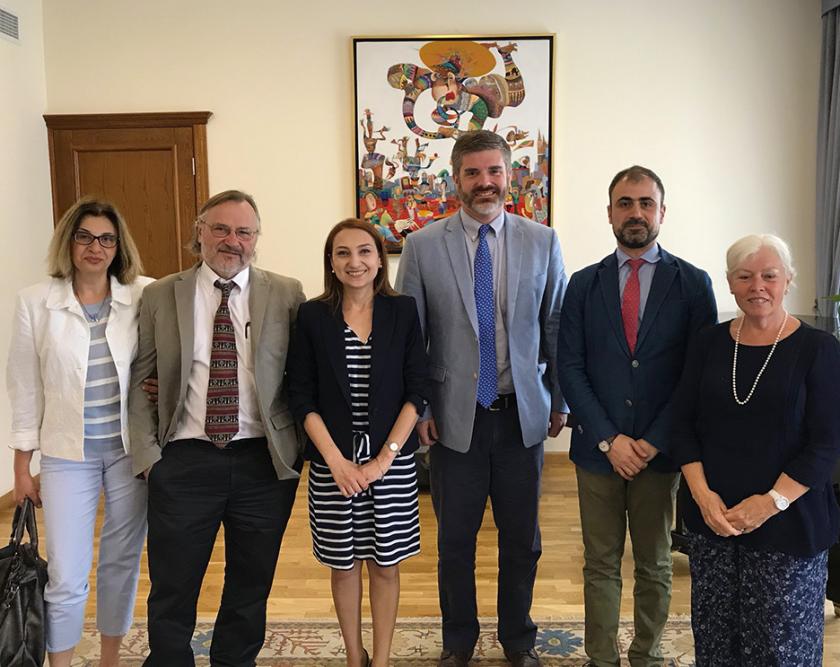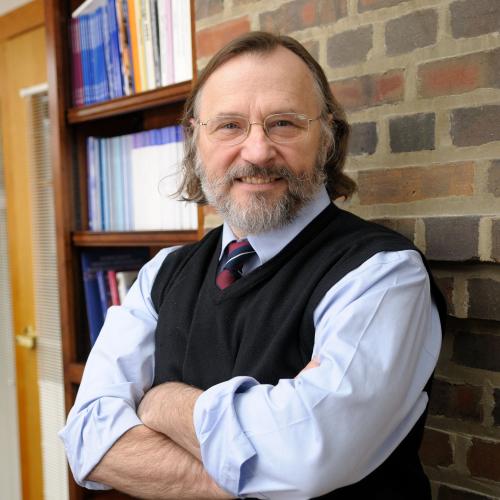

iSchool Dean Allen Renear was a keynote speaker at the symposium, "Libraries in the 21st Century: Best Practices and International Trends," on June 4 in Dilijan, Armenia. The symposium was part of the inauguration ceremonies for the Vartan Gregorian Learning Center at UWC (United World Colleges) Dilijan College.
Renear's talk, "The Role of Libraries in Preparing Students and Citizens for the 21st Century," addressed the potentially unique role of libraries in preparing students and communities for the challenges created by four forces shaping our future: information technology, globalization, demographic trends, and automation/artificial intelligence.
His visit to Armenia also included meetings with Lilit Makunts, the Armenian Minister of Culture in the newly formed Armenian Government; Anna Chulyan, head of library at the Yerevan Brusov State University of Languages and Social Sciences; Satenik (Bella) Avakian, director of the AGBU (Armenian General Benevolent Union) Papazian Library at the American University of Armenia and a 1995-96 Mortenson Fellow at Illinois; and Vartan Gregorian, president of the Carnegie Corporation of New York, as well as an introduction to the innovative TUMO Center for Creative Technologies. Steven Yates, assistant professor in the College of Communication & Information Sciences at the University of Alabama and President of the American Association of School Librarians, gave the second keynote at the symposium, focusing on library programming.